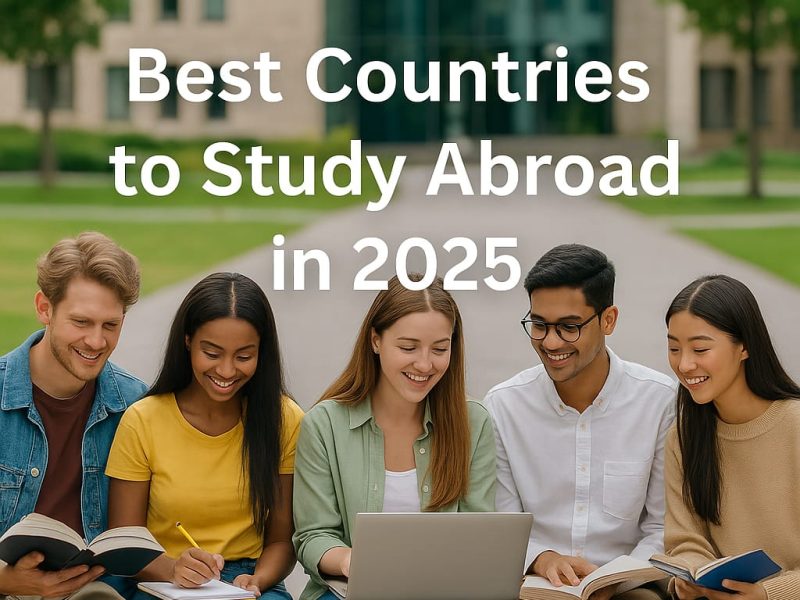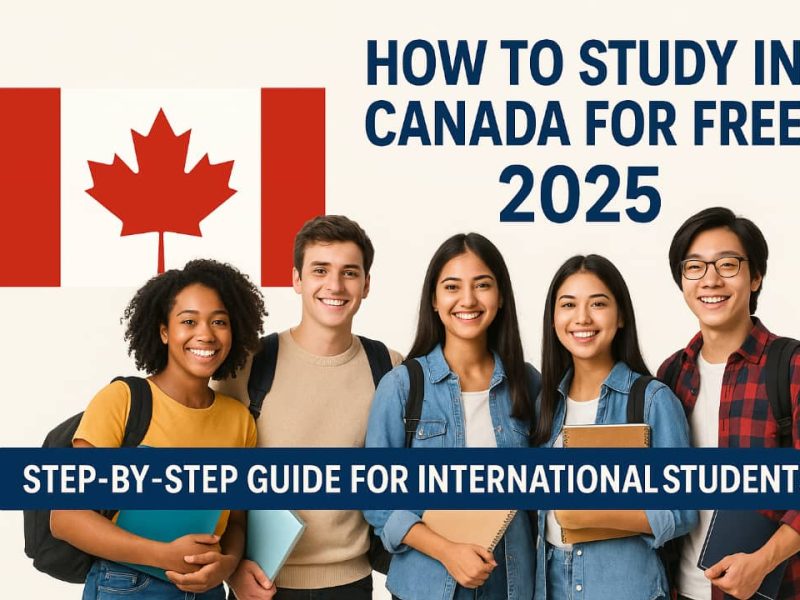In today’s interconnected world, studying abroad has become more than just an academic opportunity; it is a gateway to global networks, cultural exchange, and career advancement. Each year, thousands of ambitious students and professionals compete for prestigious scholarships that can cover tuition fees, living expenses, and travel costs. Among the most recognized international scholarship programs are Chevening, Fulbright, and Erasmus+.
Each of these programs offers unique benefits, targets specific regions or fields, and has different application requirements. Choosing the right one for you depends on your academic background, career aspirations, and preferred destination. This article provides a detailed comparison to help you make an informed decision.
What is the Chevening Scholarship?
The Chevening Scholarship is the United Kingdom government’s global scholarship program, funded by the Foreign, Commonwealth and Development Office (FCDO) and partner organizations. It was launched in 1983 with the aim of developing global leaders who can contribute to their home countries upon returning from the UK.
Chevening offers fully funded one-year master’s degree programs at any UK university in almost any field of study. Scholars receive tuition coverage, a monthly stipend, travel costs to and from the UK, and additional allowances.
Eligibility is open to citizens of over 160 countries and territories. Applicants must have at least two years of work experience, a strong academic record, and leadership potential. The selection process emphasizes future leadership, networking abilities, and a commitment to return home after studies.
Applications typically open in August and close in early November, with results announced the following June.
What is the Fulbright Scholarship?
The Fulbright Program is the flagship international educational exchange program sponsored by the United States government. It was established in 1946 under legislation introduced by Senator J. William Fulbright to promote mutual understanding between the people of the United States and other countries.
The program offers opportunities for students, scholars, and professionals to undertake graduate study, advanced research, university teaching, or teaching English abroad. It operates in more than 160 countries worldwide and is highly competitive.
Benefits include full or partial tuition coverage, living stipends, health insurance, and travel allowances. The duration varies, generally from one academic year to a multi-year program, depending on the field and degree level.
Eligibility criteria vary by country but generally require a bachelor’s degree, strong academic performance, and proficiency in English. Applicants are often expected to demonstrate leadership qualities and a commitment to community engagement. Applications are managed through local Fulbright Commissions or the US Embassy, and deadlines vary by country.
What is the Erasmus+ Scholarship?
Erasmus+ is a European Union program that supports education, training, youth, and sport in Europe. Established in 2014 as the successor to several previous EU programs, Erasmus+ aims to enhance skills and employability while promoting cooperation between institutions.
The Erasmus Mundus Joint Master Degrees (EMJMDs) are a flagship component, offering fully funded master’s programs delivered by a consortium of universities across different European countries. Students study in at least two countries during their program, gaining a truly international academic experience.
Funding covers tuition fees, travel costs, installation allowances, and monthly stipends. Erasmus+ is open to students from both EU and non-EU countries, although some programs may have specific country priorities.
Applications are made directly to the coordinating university for each program, and deadlines typically fall between October and January for courses starting in the following academic year.
Comparing Key Features
Funding and Coverage:
• Chevening offers full tuition, monthly stipends, and travel costs for a one-year master’s in the UK.
• Fulbright provides tuition, living expenses, travel allowances, and sometimes health insurance, with funding varying depending on the specific program.
• Erasmus+ covers tuition, living stipends, travel, and other allowances for the full duration of a joint master’s program, which is usually one to two years.
Academic Fields Supported:
• Chevening allows study in nearly any field at any UK university.
• Fulbright supports a wide range of fields, from STEM and social sciences to the arts and humanities.
• Erasmus+ programs are tied to specific EMJMD courses, often focusing on specialized interdisciplinary fields.
Geographic Scope:
• Chevening is exclusively for study in the UK.
• Fulbright is for study in the United States but also sends US citizens abroad.
• Erasmus+ is based in Europe and involves study in multiple countries.
Duration:
• Chevening: 1 year.
• Fulbright: 1 academic year or more depending on the program.
• Erasmus+: 1 to 2 years, depending on the master’s program.
Alumni Networks:
• Chevening has over 55,000 alumni in leadership positions worldwide.
• Fulbright has over 400,000 alumni, including Nobel Prize winners and heads of state.
• Erasmus+ alumni are part of a large network of international graduates with strong EU institutional ties.
Eligibility Criteria Compared
Academic Requirements:
• Chevening: A bachelor’s degree equivalent to at least an upper second-class 2:1 honours degree in the UK.
• Fulbright: At least a bachelor’s degree with strong academic performance.
• Erasmus+: Varies by program but generally requires a bachelor’s degree relevant to the course.
Language Proficiency:
• Chevening: IELTS, TOEFL, or other accepted English tests if not from an English-speaking country.
• Fulbright: English proficiency required, often proven by TOEFL or IELTS.
• Erasmus+: Language requirements depend on the program and may include English and another European language.
Work Experience:
• Chevening: Minimum of two years of work experience.
• Fulbright: Work experience may be required for certain programs.
• Erasmus+: Work experience is not always required but can strengthen an application.
Leadership and Engagement:
• All three scholarships value leadership potential and community involvement.
7. Application Processes Compared
Documentation:
• All three require academic transcripts, proof of language proficiency, and identification documents.
Essays:
• Chevening: Essays on leadership, networking, career plan, and chosen courses.
• Fulbright: Statement of purpose, personal statement, and sometimes research proposals.
• Erasmus+: Motivation letter, statement of purpose, and sometimes research proposals.
Recommendations:
• Two to three recommendation letters are standard.
Interviews:
• Chevening and Fulbright usually require interviews; Erasmus+ may or may not depending on the program.
Country-Specific Variations:
• Fulbright requirements differ by country, while Chevening and Erasmus+ follow more standardized processes.
Which Scholarship is Right for You?
• If your goal is to study in the UK for one year in almost any field, Chevening is a strong choice, especially if you have significant work experience and leadership achievements.
• If you want to study, teach, or conduct research in the United States with a program tailored to your country, Fulbright is ideal.
• If you are interested in a highly international European experience, moving between at least two countries as part of a joint master’s program, Erasmus+ offers unmatched mobility and cultural exposure.
Your decision should align with your academic interests, preferred destination, and career goals. Consider your profile against each program’s requirements before applying.
Success Tips for Any Scholarship Application
• Start early. Applications can take months to prepare, and deadlines vary.
• Research each program thoroughly to tailor your application.
• Be specific in essays about how the scholarship aligns with your career goals.
• Seek feedback from mentors or past scholarship winners.
• Prepare thoroughly for interviews by practicing common questions and refining your answers.
• Highlight leadership, community involvement, and cross-cultural experiences.
Conclusion
Chevening, Fulbright, and Erasmus+ are all prestigious scholarship programs that can transform your academic and professional journey. Each offers generous funding, global networking opportunities, and the chance to immerse yourself in a new culture. Choosing the right one requires a clear understanding of your goals, strengths, and preferred destination. By preparing early and presenting a strong, well-researched application, you can increase your chances of joining the ranks of distinguished alumni who are shaping the future around the world.
Frequently Asked Questions
Q1: Can I apply for more than one of these scholarships in the same year?
A1: Yes, but be prepared to manage multiple application processes and deadlines.
Q2: Do I need to have top grades to win these scholarships?
A2: Strong academics are important, but leadership, vision, and extracurricular engagement are also highly valued.
Q3: Can I work while studying under these scholarships?
A3: It depends on the host country’s regulations and scholarship terms.
Q4: Are there age limits?
A4: Most programs do not have strict age limits, but they often target early to mid-career professionals.
Q5: How competitive are these scholarships?
A5: They are extremely competitive, with acceptance rates often below 5 to 10 percent.
Q6 When should I start preparing my application?
A6: Ideally, at least six to twelve months before the deadline to gather documents, improve language scores, and refine essays.



